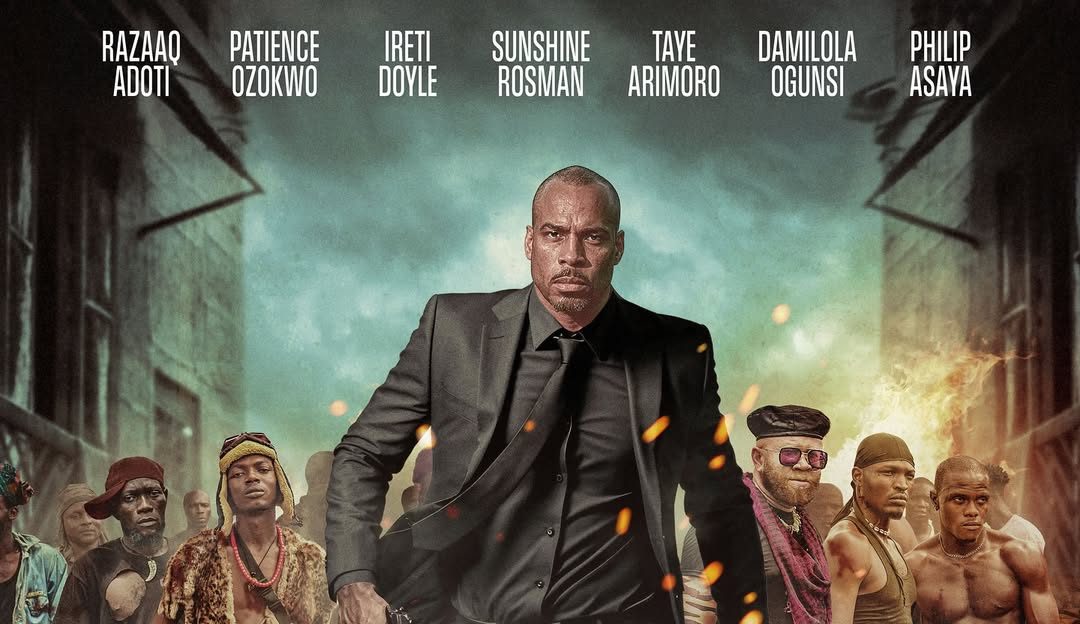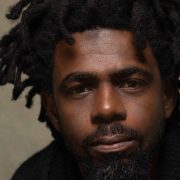Nollywood has gone way past decent action scenes. Plot and character development are major areas where the action genre continues to struggle in Nollywood. In those areas, Son of the Soil struggles more than most.
By Vivian Nneka Nwajiaku
In Son of the Soil (2025), “How long was I out?” is the first thing a son says to his mother when he wakes up from a coma after being beaten half to death. He has been out for about a week, but it feels like a second to the audience and a week too long to the son who just wants to get back into action.
When one considers the context, being that mother and son are still grieving the brutal death of the third member of their small, close-knit family, it becomes even more surprising. But that interaction emphasises just how uninterested Son of the Soil is in anything other than its fast-paced action.
The first release in a slate of African action titles under a deal between Nigeria’s Nile Entertainment and the United Kingdom’s Action Xtreme, it seems that the sole goal of this Lagos-set UK/Nigerian co-production is to be a Hollywood-quality Nigerian action film. But how much it succeeds at that depends on the “Hollywood action film” level that it aspires to.
If the ambition is to meet the standard of the average forgettable Hollywood action film, it sure does meet it, the only difference being that it may enjoy some memorability due to the relatively small number of modern Nigerian action films. But if the ambitions are bigger—perhaps, on the level of the famous Johns, Jacks, or Jasons, which it does appear to be gunning for—then, Son of the Soil is just too generic to hit the mark.

Helmed by British-Chinese director, Chee Keong Cheung (Redcon-1 (2018)), co-produced by Nigerian filmmaker Wingonia Ikpi’s Boxonia Blueprint, and written by British-Nigerian actor and screenwriter, Razaaq Adoti (CIS: Las Gidi (2011)), who also stars in the lead role, Son of the Soil follows Zion Ladejo, a former Nigerian soldier who returns from the United States to Nigeria to bury his murdered sister (played by Sharon Rotimi) and avenge her death at the hands of a powerful drug dealer (Philip Asaya) and the henchman, Shakabula (Taye Arimoro).
Zion Ladejo is no John Wick, even if he is presented like he might be. He has no skillset beyond the expected, nor is he particularly impressive at the expected. He does not seem very smart or quick-thinking. And the screenplay relies on a barrage of coincidences to keep him alive and stumbling to the end.
Quite frankly, Zion would not survive those gritty streets of Lagos that Son of the Soil vividly captures. This is an ex-military man who is going after people he knows to be powerful and dangerous, but he has no strategy, makes no actual plans, and does not even once consider moving his aged mother (Patience Ozokwor) to safety. He walks about the streets of Lagos, sticking out like a sore thumb while paying very little attention to potential dangers. In fact, a little street girl (played by the delightful child actor, Ijelu Folajimi) both outsmarts and outwits him one too many times.
It does not help that there is a mismatch between the character as professed and the character as performed. Son of the Soil wants to convince the audience that Zion lived in Nigeria long enough to serve in its military, serve some jail time, earn a questionable reputation, and have strong familiarity with the Lagos environs. But Adoti plays him like a person born and bred abroad, from the language which he manifestly struggles with, to the mannerisms, and with barely any consciousness of the setting.

That is not to say that Son of the Soil is completely lacking in Nigerianness. This film is nothing if not self-aware. So, to counter the foreignness, Son of the Soil is peppered with elements the filmmakers imagine would be Nigerian idiosyncrasies. A gangster goes on a tirade and ends it with an order for amala and egusi. Car chases are swapped for “keke” (commercial tricycle) manoeuvres. And the rest of the cast put on a very Nigerian show. But no amount of random, mostly unimportant Nigerian quirks can make up for how unoriginal and unbelievable Son of the Soil is.
It genuinely is difficult to suspend belief when the onscreen world looks very grounded and familiar but its realities make no sense. Son of the Soil was shot on location in Lagos. So, the city’s imposing physical character and raw chaotic energy make their way into the scenes, often captured in close-ups and Dutch angles, and further imposed on the audience with shaky camerawork that is entirely unnecessary or, at best, overstays its usefulness. But the city’s social tendencies rarely reflect onscreen, and the result is a jarring disconnect with negative effects on the storytelling.
In what world would random folks in crowded Lagos markets or on busy Lagos streets not have strong reactions to armed gangsters brandishing weapons and engaging in sporadic shootouts? Why is a doctor not at an obvious disadvantage in hand-to-hand combat with an ex-soldier? What would possess a wealthy and powerful Nigerian man to take a train trip with a hostage? How can an offscreen audience believe the stakes when the characters and onscreen audience do not seem to understand those stakes?

So, of course, the emotional beats in this movie fall flat, because all the effort goes into situating action set pieces on the gritty grounds of Lagos. The actual story that surrounds these set pieces is reduced to a few hasty scenes between the action star and his weakness (namely his mother) and intermittent flashbacks that merely exist as a reminder of the action star’s motives. There is no fleshing out of the film’s premise and plot points beyond the action elements, and nothing is known of the characters outside of the part they play in the action. Not even Zion’s reputation and supposedly haunted past get the opportunity to be explored.
At least, the action choreography works out well enough—even if the camerawork and sharp editing make them difficult to digest—and that does matter, in light of the continued existence of Nollywood films that fail at action, like the Ayo Makun-produced The Waiter (2024).
However, that is hardly enough to encourage praise-singing. Between Jade Osiberu’s action flicks, Brotherhood (2022) and Gangs of Lagos (2023), and Editi Effiong’s record-breaking revenge thriller, The Black Book (2023), Nollywood has gone way past decent action scenes. Plot and character development are major areas where the action genre continues to struggle in Nollywood. In those areas, Son of the Soil struggles more than most.
Rating: 2.5/5
*Son of the Soil premiered as the closing film of the 2025 Black Star International Film Festival where it won Best Overall Film, Best Director, and Best International Showcase. It had its Nigerian premiere at the Africa International Film Festival (AFRIFF) 2025 and will open in cinemas from 21st November 2025.
Vivian Nneka Nwajiaku is a writer, film critic, TV lover, and occasional storyteller writing from Lagos. She has a master’s degree in law but spends most of her time watching, reading about and discussing films and TV shows. She’s particularly concerned about what art has to say about society’s relationship with women. Connect with her on X @Nneka_Viv



